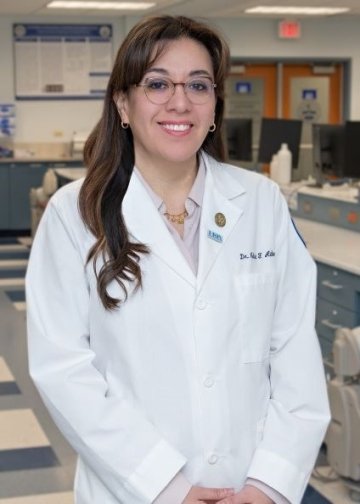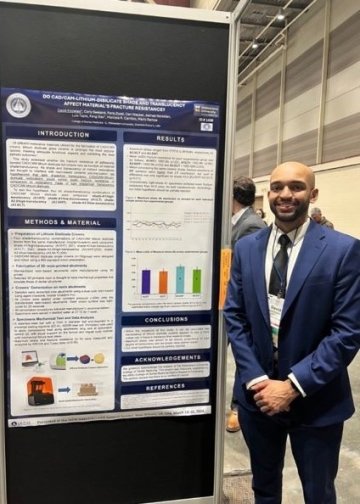
“I strive to develop cultural humility in my students and encourage them to be the kind of clinician that they would feel confident in recommending to a family member.”
Years Teaching at Midwestern University:
1.5 years (Since May 2021)
Research Interests:
Treatment methods for disorders of the voice and swallowing.
What is the most rewarding part of being a member of the Midwestern University faculty?:
Midwestern University offers an excellent balance of research and teaching. There is an evident commitment to student learning and faculty growth. Support for research facilitation and continuing education is outstanding.
How do you engage students in the learning process?:
My classroom lessons are typically a combination of lectures and hands-on training. I present theoretical information and simultaneously present case studies that invite students to think critically and understand material from real-life clinical perspectives. My classes also involve students reviewing research articles throughout the course, so they understand the principles of evidence-based practice and are consumers of high-quality research data.
What do you hope students learn from your classes?:
I hope that students develop a sense of patient-centered learning and consequently develop skills of patient-centered clinical care. Patients are the ultimate consumers of the services we provide, and clinical competence/skills are a lot more important than grades!
Why should students enroll at Midwestern University?:
As a school dedicated to education in health sciences, Midwestern offers a very student-centered approach. With faculty support, infrastructure, resources, and partnerships with community clinics in addition to our in-house Multispecialty Clinic, Midwestern offers unique learning experiences to every student. The larger Chicagoland area also offers a multitude of opportunities for school-life balance.
What lessons would you like students to take with them in their professional careers?:
I strive to develop cultural humility in my students and encourage them to be the kind of clinician that they would feel confident in recommending to a family member. I would like students to have thorough foundational knowledge and approach their patients with culturally and scientifically competent clinical care, and empathy.
What about your profession should people know more about?:
The importance of communication and healthy swallowing cannot be overstated. Impairments in these skills can lead to substantially negative quality of life. Speech-Language Pathologists work every day to make the lives of several individuals, across all ages, affected by speech, language, and swallowing disorders better. The variety of individuals we serve includes children with language and learning disorders, individuals with stuttering, professional voice users like singers and actors, individuals who have had head and neck cancers, and individuals with neurological conditions like stroke, Parkinson’s disease, and ALS to name a few.



